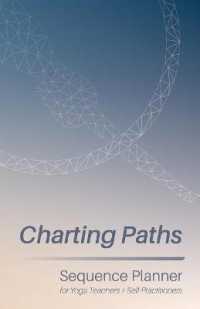- ホーム
- > 洋書
- > 英文書
- > History / World
Full Description
Fragmented, buried, and largely lost, the classical past presents formidable obstacles to anyone who would seek to know it. 'Deep Classics' is the study of these obstacles and, in particular, of the way in which the contemplation of the classical past resembles - and has even provided a model for - other kinds of human endeavor. This volume offers a new way to understand the modalities and aims of Classics itself, through the ages. Its individual chapters draw fruitful connections between the reception of the classical and current concerns in philosophy of mind, cognitive theory, epistemology, media studies, sense studies, aesthetics, queer theory and eco-criticism.
What does the study of the ancient past teach us about our encounters with our own more recent but still elusive memories? What do our always partial reconstructions of ancient sites tell us about the limits of our ability to know our own world, or to imagine our future? What does the reader of the lacunose and corrupted literatures of antiquity learn thereby about literature and language themselves? What does a shattered statue reveal about art, matter, sensation, experience, life? Does the way in which these vestiges of the past are encountered - sitting in a library, standing in a gallery, moving through a ruin - condition our responses to them and alter their significance? And finally, how has the contemplation of antiquity helped to shape seemingly unrelated disciplines, including not only other humanistic and scientific epistemologies but also non-scholarly modes and practices? In asking these and similar questions, Deep Classics makes a pointed intervention in the study of the classical tradition, now more widely known as 'reception studies'.
Contents
Acknowledgments
Notes on the Contributors
Introduction. On the Origin of "Deep Classics", Shane Butler
1. Homer's Deep, Shane Butler
2. The Sigh of Philhellenism, Joshua Billings
3. Feeling on the Surface: Touch and Emotion in Fuseli and Homer, Alex Purves
4. Perceiving (in) Depth: Landscape, Sculpture, Ruin, Helen Slaney
5. Etymological 'Alterity': Depths and Heights, Joshua Katz
6. Shut Your Eyes and See, Adam Lecznar
7. The loss of telos: Pasolini, Fugard, and the Oresteia, Sarah Nooter
8. Kings of the Stone Age, or How to Read an Ancient Inscription, Stephanie Ann Frampton
9. Queer Unhistoricism: Scholars, Metalepsis, and Interventions of the Unruly Past, Sebastian Matzner
10. Affects and contexts. A deep history of erotic anger, Giulia Sissa
11. Ghostwritten Classics, Edmund Richardson
12. Relic | channel | ghost: Centaurs in Algernon Blackwood's The Centaur, Mark Payne
13. Circulation of Spectres: Ghosts and Spells, Davide Susanetti
14. Cosmopoiesis in the Field of the Classical, Brooke Holmes
15. Borges and the Disclosure of Antiquity, Laura Jansen
Bibliography
Index






